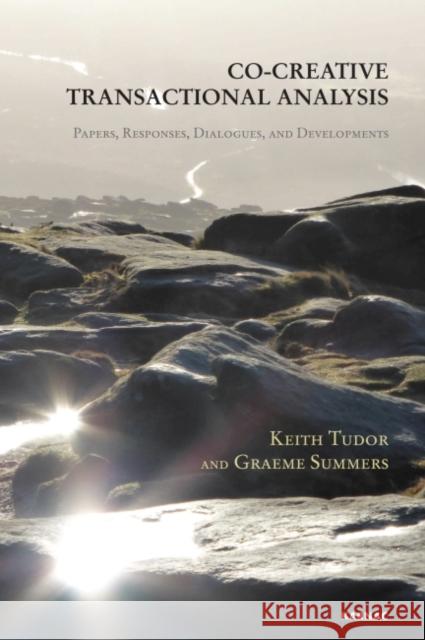Co-Creative Transactional Analysis: Papers, Responses, Dialogues, and Developments » książka
Co-Creative Transactional Analysis: Papers, Responses, Dialogues, and Developments
ISBN-13: 9781782201571 / Angielski / Miękka / 2014 / 346 str.
Co-Creative Transactional Analysis: Papers, Responses, Dialogues, and Developments
ISBN-13: 9781782201571 / Angielski / Miękka / 2014 / 346 str.
(netto: 186,15 VAT: 5%)
Najniższa cena z 30 dni: 183,79
ok. 16-18 dni roboczych.
Darmowa dostawa!
Co-creative transactional analysis is an approach to a particular branch of psychology which, as the phrase suggests, emphasizes the -co-- (mutual, joint) aspect of professional relationships, whether therapeutic, educative and/or consultative - and, by implication, of personal relationships. The -co-- of co-creative acknowledges the transactional, inter-relational, mutual, joint, and co-operative, as well as partnership.
With its roots in field theory and social constructivism, and based on guiding principles which emphasize -we- psychology, shared responsibility, and present-centered development, co-creative transactional analysis offers a re-reading of transactional analysis - and, more broadly, of other approaches to psychology and psychotherapy - which emphasizes health alongside illness and pathology; dialogue and discourse; the active engagement and participation of the therapist in the therapeutic endeavor; and the potential and possibilities of relationships and therapeutic relating.
Co-creative transactional analysis is very much part of the contemporary concern regarding the -relational turn- in psychoanalysis, psychotherapy, and counselling, and represents a -two-person psychology- and, arguably, a -two-person-plus psychology-.
Developed by the authors over some fifteen years, the co-creative approach has found a resonance not only among psychotherapists, but also educationalists, consultants and coaches.
The book itself represents and reflects the co-creative approach in that is based on a critical dialogue between the authors themselves about their collaborative and independent work, as well as between invited contributors and the authors.
It is anticipated that the book will further the constructivist approach to therapy and coaching whereby meaning constantly evolves through dialogue, discourse creates systems and the co-creation of new or novel experiences and narratives provide new relational possibilities or ways of being with each other.











